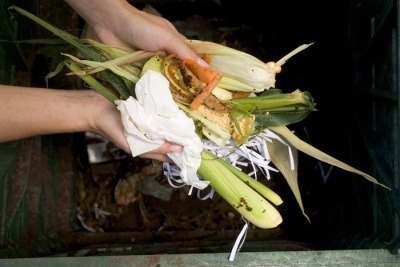Jump to navigation
Legislation comes into effect on January 1, 2022 that will see counties across California being required by law to establish plans to compost all organic waste produced by the state’s population of 40 million.
Part of the Senate Bill (SB) 1383 passed in 2016, the Short-Lived Climate Pollutants (SLCP) regulation expands upon the region’s existing organic waste reduction laws – these include AB 1826 Mandatory Commercial Organics Recycling Law, which ensures covered businesses that regularly produce over 2 cubic yards of solid waste implement organic waste recycling. SB 1383 has an ultimate aim of reducing organic waste disposal in California by 75 per cent by 2025, which currently constitutes 56 per cent of the state’s contribution to landfill. Under the broader policy, it presents a deadline for the adoption of SLCP legislation by the California Department of Resources, Recycling and Recovery (CalRecycle) for January 1, 2020. Working in collaboration with the Air Resources Board, this regulation has been, and continues to be, implemented by local jurisdictions throughout the state. Whilst enforcement of the law by CalRecycle is scheduled to begin on January 1, 2022, municipal enforcement is not due to commence until January 1, 2024.
SB 1383 has an ultimate aim of reducing organic waste disposal in California by 75 per cent by 2025, which currently constitutes 56 per cent of the state’s contribution to landfill. Under the broader policy, it presents a deadline for the adoption of SLCP legislation by the California Department of Resources, Recycling and Recovery (CalRecycle) for January 1, 2020. Working in collaboration with the Air Resources Board, this regulation has been, and continues to be, implemented by local jurisdictions throughout the state. Whilst enforcement of the law by CalRecycle is scheduled to begin on January 1, 2022, municipal enforcement is not due to commence until January 1, 2024.
Effects of the legislation of businesses
The legislation requires the state to collect and divert organic waste where possible. As such, SLCP will phase in a two-tiered system of ‘edible food collection and recovery requirements’ targeted at commercial establishments.
Tier One comes into effect on January 1, 2022 and will be enforced by CalRecycle. It will impose more stringent organic waste disposal requirements on the following enterprises: grocery outlets larger than 10,000 square feet in size; supermarkets making a gross annual revenue of over $2 million; food distributors; food service providers; and wholesale food retailers.
Coming into effect on January 1, 2024, Tier 2 will be implemented in tandem with municipal enforcement of the legislation. It will see stricter demands being placed on the following, in the case that they possess on-site food facilities: restaurants seating over 250 or with a facility size larger than 5,000 square feet; state agencies with a cafeteria housing over 250 seats or with facility size larger than 5,000 square feets; hotels with over 200 rooms; health facilities with over 100 beds; local education facilities; and large venues and events.
Beyond increasingly rigid requirements for food waste collection, commercial businesses, barring multifamily residential dwellings, will be hit with additional expectations, including the placement and labeling of collection bins, inspection, and training. The legislation also states that commercial property owners ‘must provide new tenants with organic waste collection information within 14 days of occupation’.
Effects on local jurisdictions
The new legislation will see the majority of local jurisdictions across California retain their existing three-bin system. CalRecycle advises that, depending on location, food scraps are either to be placed in green bins alongside garden waste, or simply in allocated rubbish bins where they will be separated at a Materials Recovery Facility after collection.
Once obtained, organic waste from both commercial and residential sources will be sent to one of three sites: composting facilities that produce soil amendments; anaerobic digestion (AD) plants that generate energy and biofuels; or co-digestion centres that break down organic matter in tandem with wastewater.
According to CalRecycle, the state plans to focus on assisting with implementing legislation initially, penalising serious offenders further down the line. Once in motion, however, fines of up to $10,000 per day could be applied to jurisdictions that fail to have either an ordinance, contract or programme in place.

View the discussion thread.
FareShare study found food waste responsible for 6 – 7 per cent of UK carbon emissions
Returning the material to soil, the group asserts, could significantly reduce its emissions
A survey by the Love Food Hate Waste campaign has seen rates of self-reported food waste returning to pre-lockdown levels
WRAP is calling for a united effort after it found that £13 billion of edible food was wasted by UK households in 2015, a situation Friends of the Earth calls ‘the definition of a scandal’.
Toast Ale, the beer made from discarded bread, is crowdfunding to launch its craft beer in 330-millilitre cans as part of a wider refresh of its brand identity.
The policy’s review aims to bring it up to date with current environmental objectives
Iain Gulland, Executive Director and CEO of Zero Waste Scotland, outlines how Scotland is harnessing the pandemic’s effect on waste behaviour.
The UK Plastics Pact has noted progress amongst its members in achieving targets
The infrastructure is integrated into ANPR technology to reduce queue times
The Swindon facility will see INEOS Styrolution and Recycling Technologies collaborate
© 2000 – 2021 Resource Media Limited



